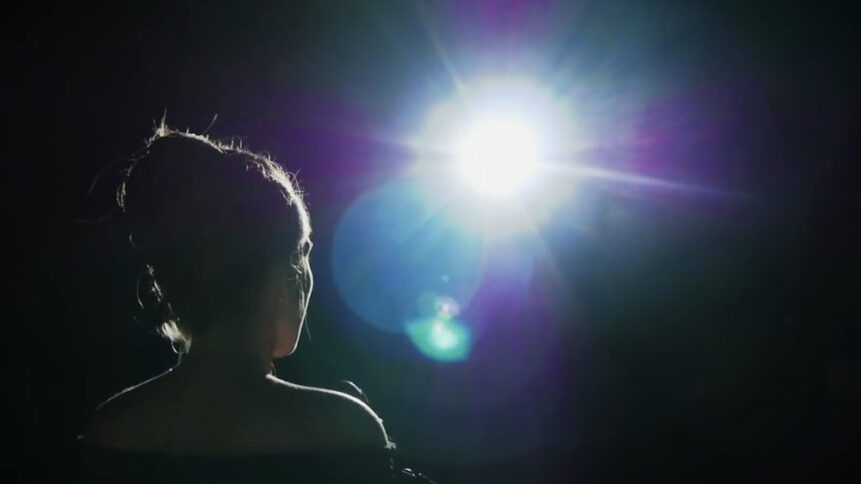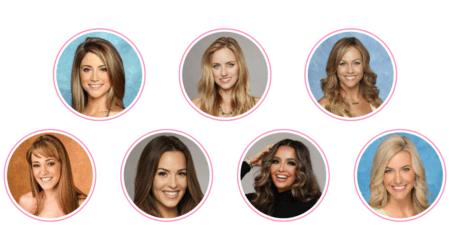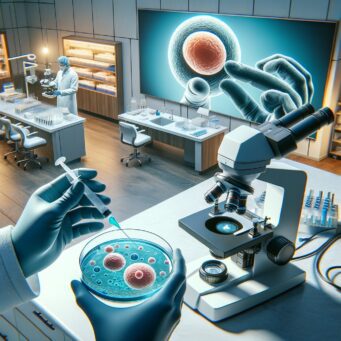
“Heather, if you continue with these fertility treatments, you may end up in a wheelchair. Or worse.” The voice of my father-in-law, an esteemed doctor in Boston rang through my head for days.
I had been off medication to treat my Multiple Sclerosis (MS) for two years, while my husband and I tried to start our family. You see, there are no “safe” medications to treat a pregnant woman with MS. And not taking my MS meds meant that I was rolling the dice that I would get pregnant before my disease relapsed.
But, I ran out of time.
My MS relapsed at the end of 2010, after 24 months of trying to get pregnant, and just as we were starting appointments to move forward with In Vitro Fertilization (IVF). We had failed to resolve my Polycystic Ovary Syndrome (PCOS) with any of the hormone treatments and other methods my well-meaning doctors and acupuncturist had attempted. My feet and legs started to go numb, alternating with a resonating electric sensation that kept spreading further up my body. I had to face the fact that I was having an MS relapse that I might never fully recover from and that if I did somehow succeed at giving birth, it could cause damage that would leave me permanently disabled.
MS is an auto-immune disease. With MS your immune system attacks the myelin coating around your nerve fibers, damaging them and forming scar tissue. The effects had led to nerve damage and “miscommunication” with my spine, my brain and the optic nerves in my eye. The immunosuppressive treatment I had been on had kept my symptoms at bay for years, enabling me to live a normal life until we decided to try for a baby.
Ironically, with autoimmune disorders a woman’s body actually does better when pregnant, because what suppresses the immune system during pregnancy also suppresses the MS. The flipside is that once a woman delivers a child, it is highly likely she’ll have a severe relapse. After you give birth, the immune system goes into overdrive as a part of the healing process, which means the immune system of an MS patient begins a full-frontal attack on her body.
The relapse forced me to stop and ask myself a lot of questions: How long would I be willing to chase this “dream” of motherhood? How much would I be willing to risk? What would life be like for me and my husband if he had to take care of a newborn child and a wife in full relapse, facing permanently disability – possibly in a wheelchair? Then again, what would our lives be like if we gave up on having children of our own? And what about adoption? Would that even be responsible as an MS patient? Not knowing how the disease would progress?
I had been off medication to treat my Multiple Sclerosis (MS) for two years, while my husband and I tried to start our family. You see, there are no ‘safe’ medications to treat a pregnant woman with MS
When we first discovered that I had PCOS, we decided to take it one step at a time, one treatment at a time, praying that I’d have a baby on-board before a relapse occurred. But in the whirlwind of appointments, treatments, and failed pregnancy tests my husband and I found ourselves in a conversation about moving forward on IVF in short order.
But, I ended up there without truly examining some really big questions. What was motivating my need to be a mother –was it just biological? Was it my age? Or maybe it was because of everyone else’s expectations? I discovered how little I had honestly examined for myself why motherhood seemed like something I had to do for my life.
It wasn’t until the threat of permanent disability that I really stopped long enough to ask myself those tough questions. And these questions had to be answered as my relapse progressed.
The conversation with my father-in-law that day felt like a turning point. I couldn’t deny the risk we were taking to move forward on the IVF plans we had made.
After many long and heartbreaking talks about my disease and the possible future, my husband and I chose to stop fertility treatments. I would go back on medication for my MS and that meant that I would never have children of my own.
In the years that followed, we wrestled with what life would look like if we never had children, and researched what adoption might look like. We watched all of our friends start families— even people who had said they never wanted kids. And I talked to countless other women (and couples) who had experienced the same kinds of challenges and questions that we had—and even more heartbreaking ones—lost pregnancies, failed IVF and debt that followed, adoptions that fell apart at the very end.
What was most surprising about these stories was that these were my friends, yet it wasn’t until I was on the other side of my issues that they shared their experiences. I was shocked to discover that women really weren’t talking about these incredibly painful challenges with anyone. They were carrying this burden largely alone, hiding within some kind of shame, as if they were failing at something. Failing at motherhood.
The relapse forced me to stop and ask myself a lot of questions: How long would I be willing to chase this ‘dream’ of motherhood? How much would I be willing to risk? What would life be like for me and my husband if he had to take care of a newborn child and a wife in full relapse, facing permanently disability – possibly in a wheelchair?
By nature, I am an artist, a writer, and an actor. Ultimately, the emotion of my own experience and the power of the stories I was hearing from others became a call to create. I decided to write a show, and went on to interview 25 women and men about their experiences of procreation— not only all kinds of heartbreak, but also the joy of those who found a way to create a family. People who brought home twin babies thanks to IVF or tackled the foster system to adopt. I also talked to women who never wanted children and felt vilified or ostracized as a result.
That’s how my baby, my show, Fertile: A Conversation About the Expectations of Procreation, was born. It’s a story about the universal fertility journey. I did my best to honor and include as many of those interviews about pregnancy, parenthood, and fertility issues as I could in that one hour, for me and for all the people were courageous enough to share.
It also captures my own spiritual journey, as my husband and I realized that we were the ones who got to decide how creating family would play out for us. This is not to say that deciding not to have kids was an easy—or popular—decision for me and my husband. To this day I have well-meaning people offer to be my surrogate, not understanding the nature of my disease(s) and others who tell me that I “should” adopt—that it’s my moral obligation.
For me, going through the experience myself, and interviewing other people and writing and performing my show ultimately left me complete, with a different desire than parenthood. It was the desire to give women, and couples, some relief from feeling that there is one way that creating a family is “supposed” to look. The conversation for procreation is something that everyone should feel they have the freedom to question and talk about and explore openly, to discover for themselves what family means and what it might look like—for them.
Contributor
Heather Dowling
Heather Dowling is a playwright and performer of solo theatrical shows, including her current show, Fertile. Find out more at HeatherDowling.com.

Listen to stories, share your own, and get feedback from the community.


















